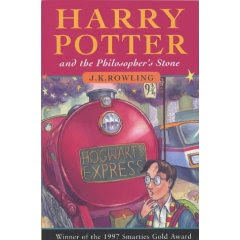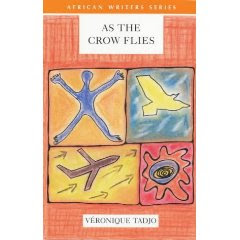Recently amongst the blogosphere I have noticed mention of Science Fiction and Fantasy (in relation to a Science Fiction challenge mainly but also in general comments) and I am given the impression -and not for the first time, I hasten to add- that Science Fiction and Fantasy are the bad words of Genre and must be uttered in hushed tones or prefixed with "I don't normally read Science Fiction/Fantasy/Delete where appropriate..." Sci-fi/Fantasy have a preconceived reputation of being geeky, perhaps, and that is undeservedly so; some great literature falls under their category.
There has also been of late the Margaret Atwood and Ursula Le Guin controversy where Atwood claims that she doesn't write Science Fiction and Le Guin disagrees. I love Margaret Atwood's fiction but if you are writing wonderful fiction then don't be embarrassed about the genrification of it and call a spade a spade. Don't hide under the term "Speculative Fiction", which simply umbrellas Science Fiction, Fantasy, Dystopian Literature, Alternative History etc. but, at the end of the day, it's all scientific or fantastical so who needs another term for it, especially one made up to save the face of bookish snobs?
Earlier this year The Guardian published a list of the 1000 Novels Everyone Must Read. I was particularly impressed and surprised by how many books I had read in the Science Fiction & Fantasy section and was also surprised at its diverse inclusion of books I consider my favourites and those I had been wanting to read for some time but hadn't considered to be Science Fiction or Fantasy. I urge you to look at this list and perhaps realise that you enjoy Science Fiction more than you know and have read or want to read more than you think. There are so many classic, popular, and incredibly famous writers and books -Pulitzer, Nobel, and Booker Prize winning titles amongst them- on this list that you may just reconsider not being fond of Science Fiction or Fantasy novels.
It may be idealist of me but I read books that I want to read, whatever their label.
In the list below, the ones scored out are the ones I have read, the ones in green those I own and plan to read soon, and those in amber are the ones I am most wanting to purchase at this given time.
The Hitchhikers Guide to the Galaxy by Douglas Adams Non-Stop by Brian W Aldiss
Foundation by Isaac Asimov
The Blind Assassin by Margaret Atwood
The Handmaid's Tale by Margaret Atwood
In the Country of Last Things by Paul Auster
The Drowned World by JG Ballard
Crash by JG Ballard
Millennium People by JG Ballard
The Wasp Factory by Iain Banks
Consider Phlebas by Iain M Banks
Weaveworld by Clive Barker
Darkmans by Nicola Barker
The Time Ships by Stephen Baxter
Darwin's Radio by Greg Bear
Vathek by William Beckford
The Stars My Destination by Alfred Bester
Fahrenheit 451 by Ray Bradbury

Lost Souls by Poppy Z Brite
Wieland by Charles Brockden Brown
Rogue Moon by Algis Budrys
The Master and Margarita by Mikhail Bulgakov
The Coming Race by EGEL Bulwer-Lytton
A Clockwork Orange by Anthony Burgess
The End of the World News by Anthony Burgess
A Princess of Mars by Edgar Rice Burroughs
Naked Lunch by William Burroughs
Kindred by Octavia Butler
Erewhon by Samuel Butler
The Baron in the Trees by Italo Calvino
The Influence by Ramsey Campbell
Alice's Adventures in Wonderland by Lewis Carroll
Through the Looking Glass and What Alice Found There by Lewis Carroll
Nights at the Circus by Angela Carter

The Passion of New Eve by Angela Carter
The Amazing Adventures of Kavalier and Clay by Michael Chabon
The Man who was Thursday by GK Chesterton
Childhood's End by Arthur C Clarke
Jonathan Strange & Mr Norrell by Susanna Clarke
Hello Summer, Goodbye by Michael G Coney
Girlfriend in a Coma by Douglas Coupland
House of Leaves by Mark Danielewski
Pig Tales by Marie Darrieussecq
The Einstein Intersection by Samuel R Delaney
Do Androids Dream of Electric Sheep? by Philip K Dick
The Man in the High Castle by Philip K Dick
Camp Concentration by Thomas M Disch
Foucault's Pendulum by Umberto Eco
Under the Skin by Michel Faber
The Magus by John Fowles
American Gods by Neil Gaiman

Red Shift by Alan Garner
Neuromancer by William Gibson
Herland by Charlotte Perkins Gilman
Lord of the Flies by William Golding
The Forever War by Joe Haldeman
Light by M John Harrison
The House of the Seven Gables by Nathaniel Hawthorne
Stranger in a Strange Land by Robert A Heinlein
Dune by Frank L Herbert
The Glass Bead Game by Herman Hesse
Riddley Walker by Russell Hoban
The Private Memoirs and Confessions of a Justified Sinner by James Hogg
Atomised by Michel Houellebecq
Brave New World by Aldous Huxley
The Unconsoled by Kazuo Ishiguro
The Haunting of Hill House by Shirley Jackson
The Turn of the Screw by Henry James
The Children of Men by PD James
After London; or, Wild England by Richard Jefferies
Bold as Love by Gwyneth Jones
The Trial by Franz Kafka
Flowers for Algernon by Daniel Keyes
The Shining by Stephen King
The Victorian Chaise-longue by Marghanita Laski
Uncle Silas by Joseph Sheridan Le Fanu
The Earthsea Series by Ursula Le Guin
The Left Hand of Darkness by Ursula Le Guin
Solaris by Stanislaw Lem
Memoirs of a Survivor by Doris Lessing
The Chronicles of Narnia by CS Lewis
The Monk by Matthew Lewis
A Voyage to Arcturus by David Lindsay
The Night Sessions by Ken Macleod
Beyond Black by Hilary Mantel
Only Forward by Michael Marshall Smith
I Am Legend by Richard Matheson
Melmoth the Wanderer by Charles Maturin
The Butcher Boy by Patrick McCabe
The Road by Cormac McCarthy
Ascent by Jed Mercurio
The Scar by China Mieville
Ingenious Pain by Andrew Miller
A Canticle for Leibowitz by Walter M Miller Jr

Cloud Atlas by David Mitchell
Mother London by Michael Moorcock
News from Nowhere by William Morris
Beloved by Toni Morrison
The Wind-Up Bird Chronicle by Haruki Murakami
Ada or Ardor by Vladimir Nabokov
The Time Traveler's Wife by Audrey Niffenegger
Ringworld by Larry Niven
Vurt by Jeff Noon
The Third Policeman by Flann O'Brien
The Famished Road by Ben Okri
Nineteen Eighty-Four by George Orwell
Fight Club by Chuck Palahniuk
Nightmare Abbey by Thomas Love Peacock
Titus Groan by Mervyn Peake
The Space Merchants by Frederik Pohl and CM Kornbluth
A Glastonbury Romance by John Cowper Powys
The Discworld Series by Terry Pratchett (in process of reading)
The Prestige by Christopher Priest
His Dark Materials by Philip Pullman
Gargantua and Pantagruel by Francois Rabelais
The Mysteries of Udolpho by Ann Radcliffe
Revelation Space by Alastair Reynolds
The Years of Rice and Salt by Kim Stanley Robinson
Harry Potter and the Philosopher's Stone by JK Rowling

Satanic Verses by Salman Rushdie
The Female Man by Joanna Russ
Air by Geoff Ryman
The Little Prince by Antoine de Saint-Exupery
Blindness by Jose Saramago
How the Dead Live by Will Self
Frankenstein by Mary Shelley
Hyperion by Dan Simmons
Star Maker by Olaf Stapledon
Snow Crash by Neal Stephenson

The Strange Case of Dr Jekyll and Mr Hyde by Robert Louis Stevenson
Dracula by Bram Stoker
The Insult by Rupert Thomson
The Hobbit by JRR Tolkien
The Lord of the Rings by JRR Tolkien
A Connecticut Yankee in King Arthur's Court by Mark Twain
Sirens of Titan by Kurt Vonnegut
The Castle of Otranto by Horace Walpole
Institute Benjamenta by Robert Walser
Lolly Willowes by Sylvia Townsend Warner
Affinity by Sarah Waters
The Time Machine by HG Wells
The War of the Worlds by HG Wells
The Sword in the Stone by TH White
The Old Men at the Zoo by Angus Wilson
The Book of the New Sun by Gene Wolfe
Orlando by Virginia Woolf
Day of the Triffids by John Wyndham
The Midwich Cuckoos by John Wyndham
We by Yevgeny Zamyatin






























